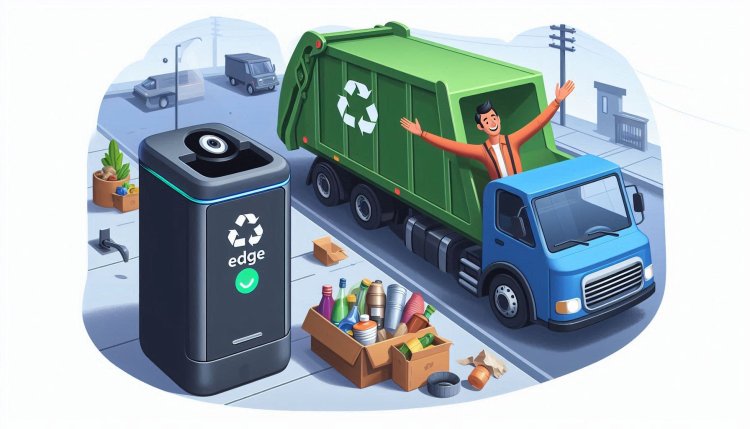Edge AI for Waste Management
Discover how Edge AI technology is revolutionizing waste management by optimizing operations, reducing costs, and enhancing sustainability efforts.

Edge AI for Waste Management
Waste management is an essential aspect of sustainable development and environmental conservation. With the increasing amount of waste generated worldwide, it has become crucial to implement efficient waste management solutions. One innovative technology that is revolutionizing waste management processes is Edge Artificial Intelligence (AI).
What is Edge AI?
Edge AI refers to the deployment of artificial intelligence algorithms and models on edge devices such as sensors, cameras, and other IoT devices, allowing data processing to be done locally on the device itself rather than relying on cloud servers. This enables real-time data analysis, reduces latency, and enhances privacy and security.
How Edge AI is Transforming Waste Management
Edge AI is being increasingly used in waste management to optimize collection routes, enhance recycling processes, and improve overall efficiency. Here are some ways in which Edge AI is transforming waste management:
1. Smart Waste Bins
Smart waste bins equipped with sensors and cameras utilize Edge AI to detect waste levels, classify the type of waste, and optimize waste collection routes. By analyzing real-time data, these smart bins can alert waste management companies when they need to be emptied, reducing unnecessary trips and optimizing resource allocation.
2. Recycling Sorting
Edge AI algorithms can be deployed in recycling facilities to automate the sorting process. By using computer vision and machine learning models, these systems can identify and separate different types of recyclable materials such as plastics, metals, and paper, increasing the efficiency of recycling operations and reducing contamination.
3. Predictive Maintenance
Edge AI can be used for predictive maintenance of waste management equipment such as waste collection trucks and compactors. By analyzing data from sensors and IoT devices in real-time, maintenance issues can be detected early, preventing costly breakdowns and improving the lifespan of equipment.
4. Environmental Monitoring
Edge AI systems can monitor environmental parameters such as air quality, temperature, and humidity in waste management facilities. By analyzing this data in real-time, operators can ensure compliance with environmental regulations, identify potential risks, and take proactive measures to mitigate environmental impact.
Benefits of Edge AI in Waste Management
The integration of Edge AI in waste management offers several benefits:
- Real-time Data Analysis: Edge AI enables real-time analysis of data, allowing waste management companies to make informed decisions quickly and efficiently.
- Cost Savings: By optimizing collection routes and reducing maintenance costs, Edge AI can help waste management companies save money and resources.
- Improved Efficiency: Automation and optimization enabled by Edge AI can streamline waste management processes, leading to increased efficiency and productivity.
- Environmental Conservation: By improving recycling rates, reducing waste generation, and monitoring environmental parameters, Edge AI contributes to environmental conservation efforts.
- Data Privacy and Security: Edge AI processes data locally on devices, enhancing privacy and security by minimizing the need for data transfer to external servers.
Challenges and Considerations
While Edge AI offers numerous benefits for waste management, there are also challenges and considerations that need to be addressed:
- Data Quality: Ensuring the accuracy and reliability of data collected by sensors and cameras is essential for the effectiveness of Edge AI applications.
- Scalability: Scaling up Edge AI solutions across a wide range of waste management facilities and locations can pose challenges in terms of infrastructure and connectivity.
- Interoperability: Compatibility and integration with existing waste management systems and technologies need to be considered when implementing Edge AI solutions.
- Regulatory Compliance: Adhering to data privacy regulations and environmental standards is crucial when deploying Edge AI in waste management.
Future Outlook
The adoption of Edge AI in waste management is expected to continue growing as technology advances and awareness of environmental issues increases. Future developments may include enhanced predictive analytics, autonomous waste collection vehicles, and more sophisticated recycling processes. By leveraging the power of Edge AI, waste management can become more sustainable, efficient, and environmentally friendly.
What's Your Reaction?

















